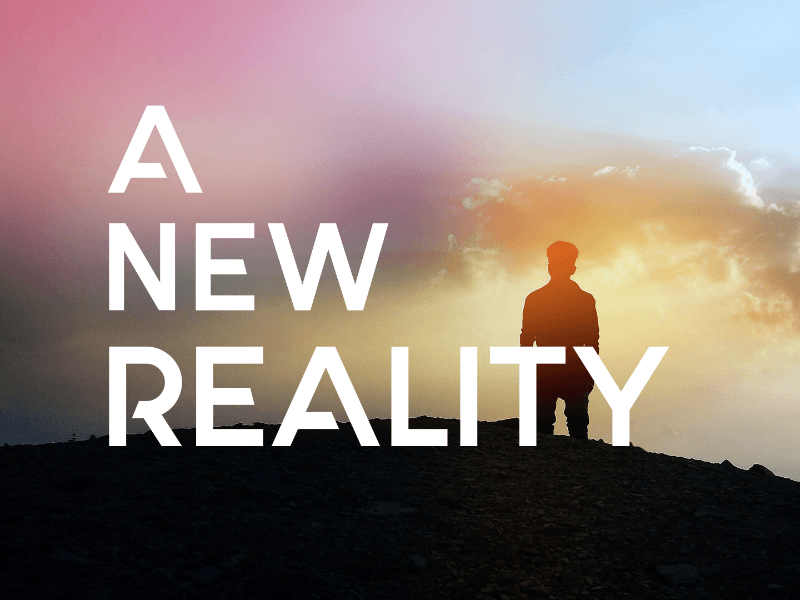The new reality – which one exactly…?

30 March 2020
Each crisis brings up a not so pleasant side effect: Self-proclaimed thought leaders trying to exploit the situation, looking more at their personal need to create new business than really keeping the wealth of the industry in mind.
Business worldwide is down for almost anybody in the travel chain. This is most obvious for airlines and hotels, but it has much wider implications, reaching out to suppliers, hotel investors or airplane manufacturers. And this results in plenty of „spare time“ for many people in the industry, including notably for consultants.
There is no doubt that the industry needs to move forward and needs people pushing developments at an intellectual level – but not each event is suitable to have that potential for being a game changer. Remember when such presumed forward thinkers sold you the spin-off of FFPs or revenue-based schemes as solution to all your problems (because they had some hidden agenda in there)?
Many people are drawing up these days the so-called new reality or new norm after Covid-19, the implications on the travel industry in general and on loyalty programs in particular. Yes, it is laudable to use the time locked in into your four walls for some strategic thinking, but not necessarily everything resulting from that thinking is worth being elevated to the status of a new reality.
To make it simple, the travel industry lives of business travellers and leisure travellers, the latter distinguishable into holiday makers and VFR (visiting friends and relatives) traffic. Personally, I don’t predict a long term change in behaviour for any of these main groups due to the current situation, except for an initial transition period, which might last some time.
Yes, most people work from home these days and people predict that this will change the way companies view the need for business travel, with a potential negative impact on the financial situation of the whole travel chain (incl. loyalty programs) if this most lucrative target group reduces its travel activity and related spending.
Working from home might indeed be technically feasible in virtually all parts of the world thanks to the available technology – but concluding from that that we can do without business travel might be a far stretch. Whether you measure it by GDP figures, stock exchange values or employees‘ moral, there is not much that allows you right now really concluding that the economy is in a great shape and that we can all live and prosper with this new norm of a travel-free environment. For corporate travel managers, there will even be more pressure on not putting travellers in cramped Economy cabins (social distancing), resulting potentially in higher revenues for airlines. On the other side, much „non-essential“ travel has already been reduced a long time ago as part of general cost reductions and more cost-conscious travel management policies.
At the leisure level, being locked into your place for several weeks lets you just understand the value of freedom. Once it can be considered fairly safe, people will continue to want to travel and explore the world again, near and far. If you have family and friends far away, does that current forced separation give you rather more or less motivation to see each other? Skype is good, but will never replace real human interaction.
And loyalty programs will continue to play their psychological role in the decision process between different suppliers and, to a certain degree, even between travelling and not travelling. No virus as of yet has been invented that will change the fundamental need of human beings to be rewarded and recognised.
No doubt that there are lessons learned from the current situation and that it will change behaviour and reasoning in certain regards in the long term, e.g. with a need to take more care of elderly clients (e.g. in form of a 50% discount for in-room service at hotels for senior guests). But all this will be a slow evolution and only time will tell whether Covid-19 was any catalysator to that or not. And loyalty programs will continue to evolve alongside such market evolutions and ask questions such as which currency to adopt – but they would be stupid not to exploit the natural potential they have because their members are first of all simple human beings with a simple psychological structure, which can easily be influenced by using the right mechanisms.
So, if you hear next time an expert predicting you the future of the loyalty industry (and it won’t be long!), sit back and smile. The fundamentals of the loyalty industry are directly linked to the human psychology. It will take decades to change that significantly, so don’t get fooled now in these extraordinary times. Focus on getting through the crisis and focus on preparing for the time after – but don’t cut off your feet by questioning the basics because you’d find yourself in a serious competitive disadvantage afterwards. Others won’t listen to such voices and they will be right not to do so.







